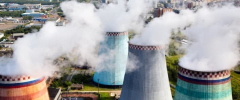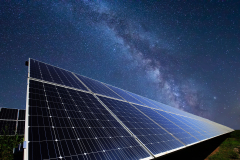President Trump has doubled down on his pledges to allow for more fossil fuel production and reign in green funding since he came into office last month. He signed executive orders to allow for new oil and gas exploration and boost output, as well as restrict new renewable energy projects and halt a great deal of green funding. He declared a national energy emergency on 20th January, under the National Emergencies Act, largely in a bid to support fossil fuels and condemn renewable energy sources. However, perhaps surprisingly, his condemnation of clean energy does not appear to extend to nuclear power, which is expected to flourish under the Trump administration.
Chris Wright, the Energy Secretary appointed by Trump, sees commercial nuclear energy as a key power source in the future of U.S. energy. Upon taking office, he listed his priorities, which included advanced nuclear power, fossil fuels, geothermal, and hydropower. Wright’s first Secretarial Order states, “The long-awaited American nuclear renaissance must launch during President Trump’s administration. As global energy demand continues to grow, America must lead the commercialisation of affordable and abundant nuclear energy. As such, the Department will work diligently and creatively to enable the rapid deployment and export of next-generation nuclear technology.” It also says, “The Department must also prioritise true technological breakthroughs – such as nuclear fusion.”
Maria Korsnick, President and CEO of the Nuclear Energy Institute, responded by saying, “We applaud the Senate’s confirmation of Chris Wright as Secretary of Energy. In this new role, Secretary Wright will play a pivotal role in furthering our nation’s energy and national security goals through prioritizing reliable, 24/7/365 energy generation, like clean nuclear energy. We look forward to working with Secretary Wright to continue our progress toward building the resilient, reliable, and affordable energy grid of the future.”
Some expect Trump to back smaller-scale nuclear projects that are faster and cheaper to get up and running. During his presidential campaign in October, Trump pointed out in an interview with podcaster Joe Rogan that large-scale nuclear builds like Vogtle “get too big, and too complex and too expensive.”
During his first term in office, Trump signed an executive order promoting the use of small modular reactors (SMRs) for national defence and space exploration. SMRs are viewed by many as the future of nuclear power as they can be developed cheaper and faster than conventional reactors and can be joined together to produce more power. Further, several non-traditional nuclear energy companies, including start-ups, without the capabilities to build large reactors are developing SMRs. The licensing process for SMRs is expected to be more streamlined than large-scale projects, all





